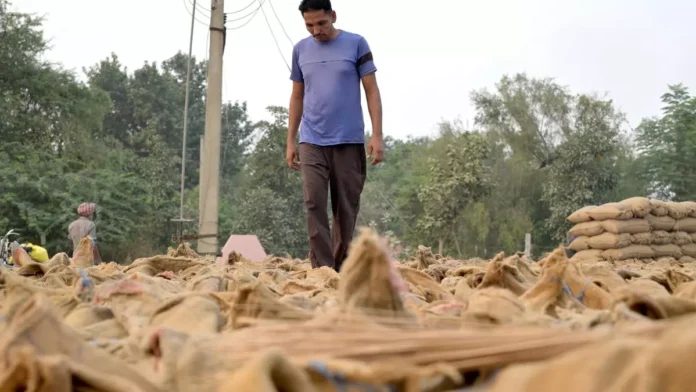Paddy procurement delays in 2024 have left farmers grappling with significant hardships, sparking widespread protests and calls for reforms across India. The delayed payments, insufficient infrastructure, and policy gaps disrupted the agricultural ecosystem, especially in key rice-producing states like Punjab, Haryana, and Uttar Pradesh. With livelihoods hanging in the balance, the year has underscored the urgent need to address these systemic issues.
Understanding The Paddy Procurement Crisis
The challenges surrounding paddy procurement became more pronounced in 2024 due to several factors, including logistical inefficiencies and policy implementation delays. Farmers often found themselves at the receiving end of delayed payments despite selling their crops to government procurement agencies. In some regions, the payment delays stretched for months, creating a financial strain on families reliant on agricultural income.
Adding to these woes, inadequate infrastructure such as limited storage facilities and insufficient procurement centers further complicated the process. This lack of preparedness often left farmers vulnerable, forcing many to sell their crops at rates below the Minimum Support Price (MSP) to private traders.
How MSP Implementation Fell Short?
The MSP is designed to safeguard farmers from market fluctuations, but in 2024, the system struggled to deliver on its promise. Many farmers reported that government procurement centers either failed to operate effectively or did not have the capacity to handle the volume of paddy produced. This forced farmers into distress sales, undermining the very purpose of MSP.
Additionally, the lack of clear communication and coordination between central and state governments created confusion and delays in policy implementation. Farmers, particularly small and marginal ones, bore the brunt of these inefficiencies, further deepening their mistrust in the system.
Farmer Protests Amplify Voices Of Frustration
Frustrated by the lack of resolution, farmers across the country mobilized in large numbers to demand better support and timely action. In Punjab and Haryana, massive protests erupted, with farmers blocking roads and staging sit-ins at procurement centers. Many voiced concerns over the government’s failure to address their grievances despite repeated promises.
The unrest spread to other states like Uttar Pradesh and Bihar, where farmers joined hands to amplify their demands for immediate payments, better logistics, and robust agricultural policies. These protests underscored the growing discontent among the farming community and the need for meaningful dialogue and solutions.
Government Response To The Crisis
In response to the escalating unrest, the government announced several measures aimed at mitigating the crisis. These included the allocation of additional funds for procurement, the establishment of new centers, and a commitment to faster payments. However, critics have argued that these measures were largely reactionary and insufficient to address the root causes of the problem.
Efforts to improve coordination between central and state authorities were also initiated, with an emphasis on streamlining operations and reducing bottlenecks. While these steps provided some relief, their effectiveness was limited by delays in implementation and a lack of consistent monitoring.
The Role Of Infrastructure And Technology
One of the key takeaways from the 2024 crisis is the need to invest in agricultural infrastructure and technology. Modernizing storage facilities, enhancing transport networks, and adopting digital solutions for payment and procurement processes can significantly reduce inefficiencies.
For instance, digital payment platforms can ensure that farmers receive their dues promptly, eliminating the risks associated with manual processes. Similarly, the use of blockchain technology for tracking procurement and inventory can improve transparency and accountability, building trust among farmers.
Long-Term Implications For Farmers
The paddy procurement crisis of 2024 has long-term implications for India’s agricultural landscape. Delayed payments and inadequate support can deter farmers from investing in future crops, potentially reducing agricultural productivity. This could lead to a ripple effect, impacting food security and the overall economy.
Moreover, the crisis has highlighted the vulnerabilities of small and marginal farmers, who often lack the resources to cope with such challenges. Strengthening farmer support systems, including access to credit and insurance, is essential to building resilience and ensuring sustainable livelihoods.
The Need For Comprehensive Reforms
Addressing the challenges of paddy procurement requires more than short-term fixes; it demands comprehensive reforms. Policymakers must focus on creating an integrated approach that includes infrastructure development, policy alignment, and farmer empowerment.
Training and education programs can equip farmers with the knowledge and skills needed to navigate market dynamics and adopt modern agricultural practices. Additionally, fostering public-private partnerships can drive innovation and investment in the agricultural sector, creating a more robust and efficient ecosystem.



